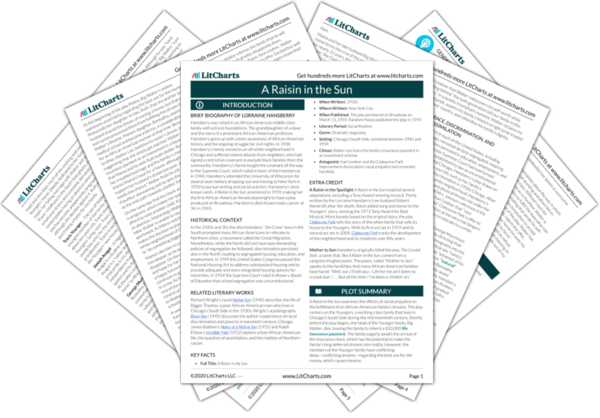Joseph Asagai Quotes in A Raisin in the Sun
Act 1, Scene 2 Quotes
Asagai: You wear it well . . . very well . . . mutilated hair and all.
Beneatha: My hair – what’s wrong with my hair?
Asagai: Were you born with it like that?
Beneatha: No . . . of course not.
Act 3 Quotes
Then isn’t there something wrong in a house – in a world! – where all dreams, good or bad, must depend on the death of a man? I never thought to see you like this, Alaiyo.
Don’t you see that they will be young men and women – not British soldiers then, but my own black countrymen – to step out of the shadows some evening and slit my then useless throat? Don’t you see they have always been there . . . that they will always be. And that such a thing as my own death will be an advance?

Joseph Asagai Quotes in A Raisin in the Sun
Act 1, Scene 2 Quotes
Asagai: You wear it well . . . very well . . . mutilated hair and all.
Beneatha: My hair – what’s wrong with my hair?
Asagai: Were you born with it like that?
Beneatha: No . . . of course not.
Act 3 Quotes
Then isn’t there something wrong in a house – in a world! – where all dreams, good or bad, must depend on the death of a man? I never thought to see you like this, Alaiyo.
Don’t you see that they will be young men and women – not British soldiers then, but my own black countrymen – to step out of the shadows some evening and slit my then useless throat? Don’t you see they have always been there . . . that they will always be. And that such a thing as my own death will be an advance?











